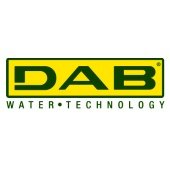“Fitting the correct Residual Current Device (RCD) when fitting new appliances”
Advice notice from the BPMA

The majority of homes in the UK have type “AC” Residual Current Devices (RCD) fitted as standard which is used for general purpose and can detect & respond to AC sinusoidal wave only and offer no DC fault protection. In the latest 18th edition BS 7671:2018 – requirements for electrical installations, IET wiring regulations, 531.3.3 covers general application areas and futureproofs the regulations recognising the need to verify the section of the RCD based on the residual current and characteristics of the appliance or loads connected to the installation, as new appliances are introduced to the market, selecting the correct RCD protection for the latest washing machines, phone chargers, LED lighting, Induction hobs, USB sockets, laptop chargers, boilers and replacement high-efficiency pump units etc.
It’s crucial and time to look at changing your RCD protection. Homeowners and installers need to be made aware of these requirements and take action to ensure the safety of the installation. These appliances used in domestic premises can produce residual currents that are not compatible with the type “AC” RCD’s. Consequently, the 18th edition has been updated to be aligned with the existing Electrical Safety Standards adopted in other countries. In Germany and several other western European countries types, “AC” RCD’s are no longer allowed due to restricted protection scope.
Therefore, the BPMA advises that as every installation is unique, the responsibility for selecting the correct RCD, rests with the qualified installer / electrician. Always remember to follow the appliance manufacturers instructions on which type of RCD to use, this information can normally be found in the Installation Operating Manual (IOM) and can be downloaded from the manufacturer’s websites. As there are many types of RCD’s with the corresponding symbols such as AC, A, F, B and B+ but always refer to which one to install.
Back to Resources




3.png&w=170&h=170)
2.jpg&w=170&h=170)


1.png&w=170&h=170)


